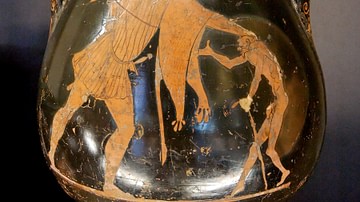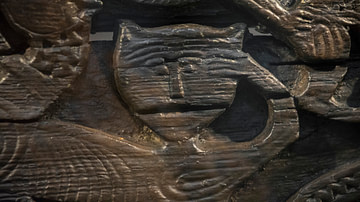Search
Search Results

Article
Pirate Punishments in the Golden Age of Piracy
Pirates in the Golden Age of Piracy (1690-1730) both dished out and received a wide range of imaginative punishments. Victims of piracy endured torture, floggings, and ceremonies of humiliation, but when brought to justice, the pirates were...

Article
Pirate Clothing in the Golden Age of Piracy
Pirates have gained a reputation for wearing bright and distinctive clothing and accessories during the Golden Age of Piracy (1690-1730) even if, in reality, most of what we think they wore comes from works of fiction like Robert Louis Stevenson’s...

Article
Baroque, Age of Contrasts - Exhibition Interview Schweizerisches Landesmuseum
The Baroque era, which lasted from roughly 1580 and 1780, was a time of enormous contrasts: Opulence and innovation, on the one hand; death and crises, on the other. Ongoing religious wars and the opening of global trade networks led to mass...

Definition
Prince Henry the Navigator
Prince Henry the Navigator (aka Infante Dom Henrique, 1394-1460) was a Portuguese prince who famously helped capture the North African city of Ceuta, sponsored voyages of exploration with the aim of building colonies in the North Atlantic...

Article
Viking Age Greenland
Greenland was drawn into the Viking Age and settled by Norse Vikings in the late 980s CE, their presence there lasting into the 15th century CE. Despite its ice-riddled geography, the Norse managed to carve out a living for themselves in...

Article
Pirate Havens in the Golden Age of Piracy
The buccaneers who roamed the Spanish Main and the pirates who plundered the Caribbean and the Indian Ocean during the Golden Age of Piracy (1690-1730) needed a place of refuge where they could share out and enjoy their loot. Pirate havens...

Article
Treasure & Booty in the Golden Age of Piracy
During the Golden Age of Piracy (1690-1730), pirates were first and foremost after gold, silver, and jewels, but if these could not be grabbed, then a ship’s cargo would be taken for resale at a pirate haven. Shared amongst the crew, the...

Article
Pirate Weapons in the Golden Age of Piracy
Pirates in the so-called Golden Age of Piracy (1690-1740) used all manner of weapons to attack ships and relieve them of their precious cargoes. Heavy cannons, muskets, pistols, cutlasses, and grenades were just some of the weapons pirates...

Article
Growing Old in Ancient Greece & Rome
Although life expectancy was lower in ancient Greece and Rome, many people survived into old age. Those who reached old age tended to accumulate wealth and political power. However, the societies of the ancient Mediterranean were also often...

Article
Norse Pets in the Viking Age
Pets were as important to the Norse of the Viking Age (c. 790-1100 CE) as they were to any other culture, past or present. The Vikings kept dogs and cats as pets and both feature in Norse religious iconography and literature. The Norse also...